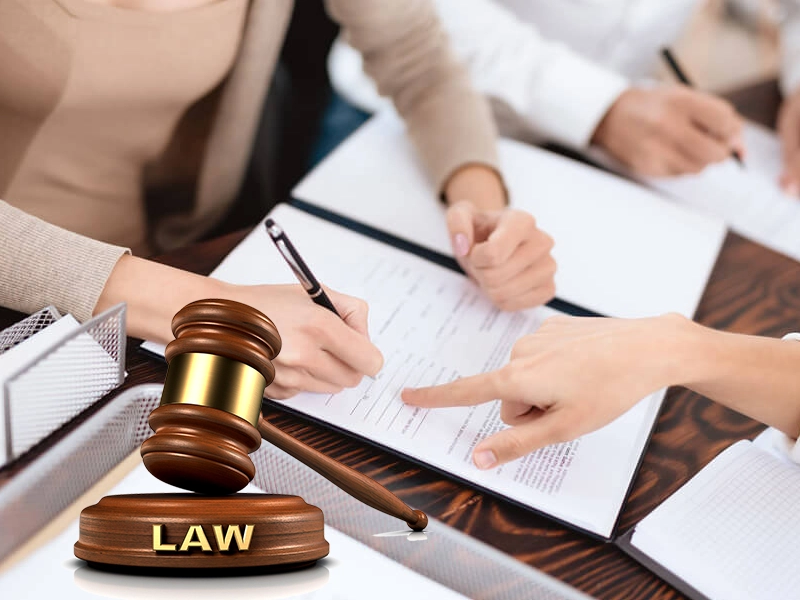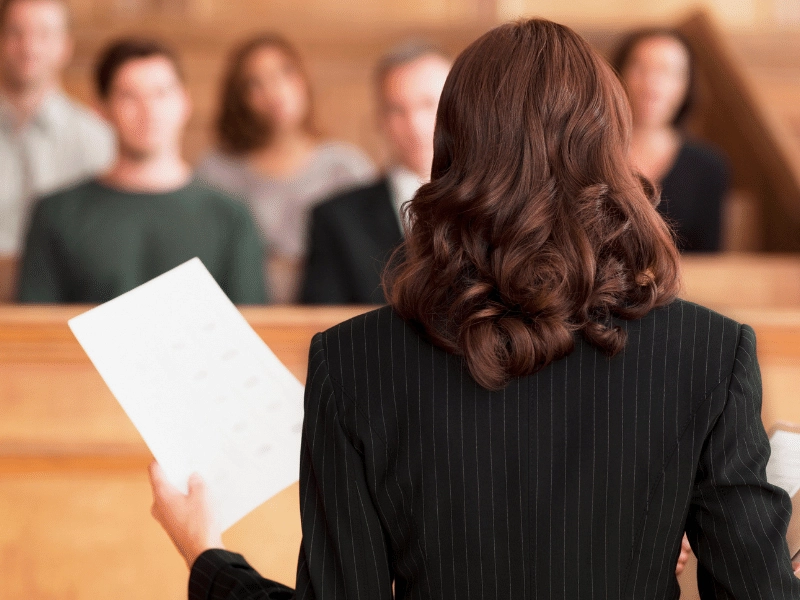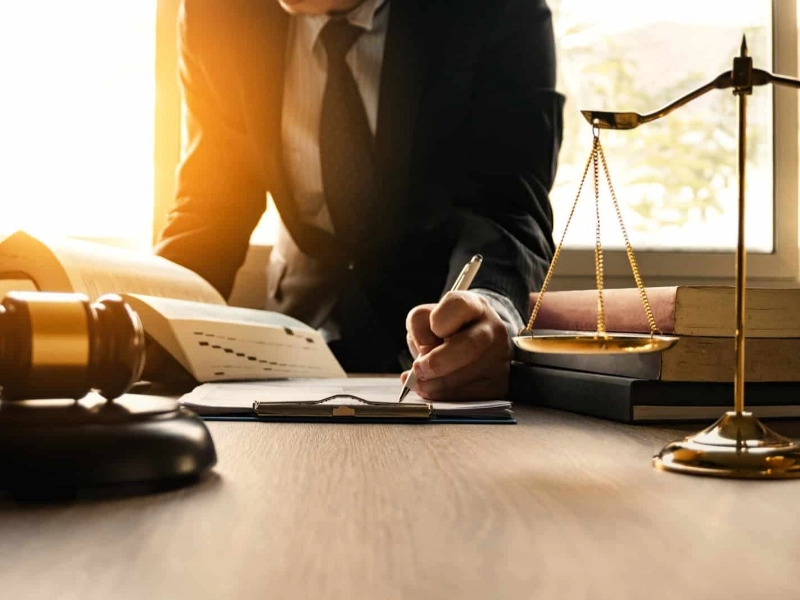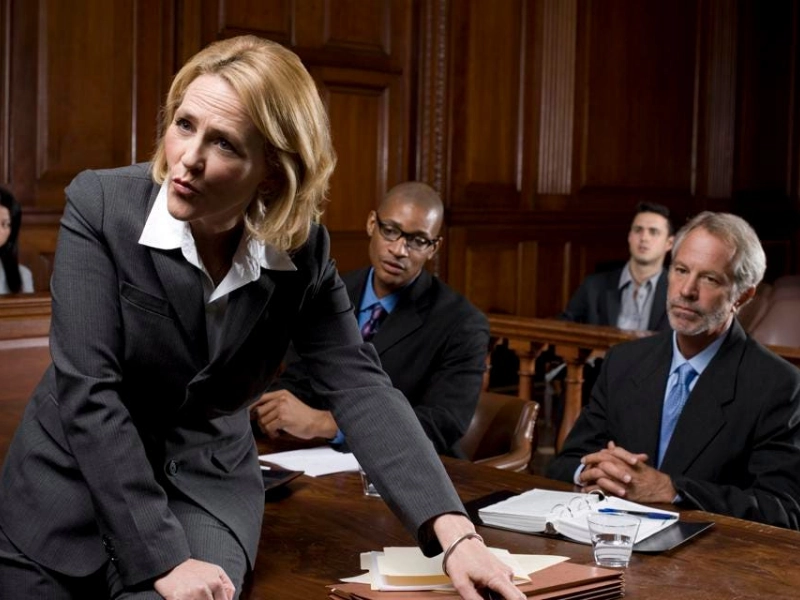For individuals positioned at the margins, the criminal justice system may appear to be an intricate labyrinth. This manual describes legal entitlements and breaks down important system components. The success of a defendant's defense strategy may depend on selecting the correct lawyer. This source offers useful details regarding the procedure as well as advice on how to assess an attorney.
 The Supreme Court ruled in 1964 that the right to counsel for those detained for criminal offenses is guaranteed under the constitution. The court explicitly said in Gideon v. Wainwright that individuals who are being prosecuted for a crime need to receive legal representation for both themselves and their families.
Legal aid is provided to defendants who are unable to pay private counsel to represent them during their arraignment, which is the initial court appearance following an arrest. In non-criminal matters pertaining to their criminal case, such as hearings for school suspension, property forfeiture, or sex offender categorization, legal aid attorneys also represent their current clients.
But the defender system confronts enormous obstacles, just like every other institution that helps the underprivileged get representation in cases with significant stakes. To address those problems, a Joint Committee of the New York County Lawyers' Association and the Association of the Bar of the City of New York created this Handbook.
The Supreme Court ruled in 1964 that the right to counsel for those detained for criminal offenses is guaranteed under the constitution. The court explicitly said in Gideon v. Wainwright that individuals who are being prosecuted for a crime need to receive legal representation for both themselves and their families.
Legal aid is provided to defendants who are unable to pay private counsel to represent them during their arraignment, which is the initial court appearance following an arrest. In non-criminal matters pertaining to their criminal case, such as hearings for school suspension, property forfeiture, or sex offender categorization, legal aid attorneys also represent their current clients.
But the defender system confronts enormous obstacles, just like every other institution that helps the underprivileged get representation in cases with significant stakes. To address those problems, a Joint Committee of the New York County Lawyers' Association and the Association of the Bar of the City of New York created this Handbook.
 Plea agreements, which enable defendants to acknowledge guilt in exchange for concessions from the prosecution, are an essential component of the legal system. These concessions could be the avoidance of jail time, a recommendation for leniency in sentence, or even lower charges.
The prosecution typically offers the defendants a number of plea choices, and they must decide which one is in their best interests. They can talk about these choices with their criminal defense lawyer, who offers guidance on the law and outlines the ramifications of each choice.
The possibility of a shorter sentence is the main reason a defendant would take a plea bargain. On the other hand, detractors contend that plea bargaining forces innocent persons to enter guilty pleas for crimes they did not commit and may result in their convictions being permanently recorded.
Plea agreements, which enable defendants to acknowledge guilt in exchange for concessions from the prosecution, are an essential component of the legal system. These concessions could be the avoidance of jail time, a recommendation for leniency in sentence, or even lower charges.
The prosecution typically offers the defendants a number of plea choices, and they must decide which one is in their best interests. They can talk about these choices with their criminal defense lawyer, who offers guidance on the law and outlines the ramifications of each choice.
The possibility of a shorter sentence is the main reason a defendant would take a plea bargain. On the other hand, detractors contend that plea bargaining forces innocent persons to enter guilty pleas for crimes they did not commit and may result in their convictions being permanently recorded.
 When they are arrested, many victims of gun violence come into contact with the criminal justice system for the first time. They can prepare for their case and maintain composure if they are aware of the procedure and their rights during an arrest.
Taking a suspect into custody against their will is a criminal arrest. This can happen in a number of ways, such as when police pull over someone, make an arrest on a warrant, or issue a citation.
Following a finding of probable cause, the prosecutor's office will submit a complaint to the judge. After that, a defendant will be arraigned.
The court will consider all the evidence during this hearing and make a determination regarding the prosecution or dismissal of the charges. The judge will either set bail or release the accused on their own recognizance and set a trial date if the district attorney's office chooses to press charges.
When they are arrested, many victims of gun violence come into contact with the criminal justice system for the first time. They can prepare for their case and maintain composure if they are aware of the procedure and their rights during an arrest.
Taking a suspect into custody against their will is a criminal arrest. This can happen in a number of ways, such as when police pull over someone, make an arrest on a warrant, or issue a citation.
Following a finding of probable cause, the prosecutor's office will submit a complaint to the judge. After that, a defendant will be arraigned.
The court will consider all the evidence during this hearing and make a determination regarding the prosecution or dismissal of the charges. The judge will either set bail or release the accused on their own recognizance and set a trial date if the district attorney's office chooses to press charges.
 State and municipal courts in the United States handle the bulk of criminal cases. These courts follow the rules set forth to protect public safety and uphold the law.
An initial appearance, sometimes referred to as an arraignment, is when a person facing criminal charges makes their first court appearance. The accused is notified of the charges against them at this hearing, where the court also makes any necessary preparations for legal representation and determines whether the accused will be kept in custody or released on bond pending trial.
Studies reveal that many who deal with the criminal justice system see it as a mysterious, opaque maze of capricious processes. This handbook explains the steps involved in the courts, law enforcement, and correctional subsystems to assist people in navigating the process.
State and municipal courts in the United States handle the bulk of criminal cases. These courts follow the rules set forth to protect public safety and uphold the law.
An initial appearance, sometimes referred to as an arraignment, is when a person facing criminal charges makes their first court appearance. The accused is notified of the charges against them at this hearing, where the court also makes any necessary preparations for legal representation and determines whether the accused will be kept in custody or released on bond pending trial.
Studies reveal that many who deal with the criminal justice system see it as a mysterious, opaque maze of capricious processes. This handbook explains the steps involved in the courts, law enforcement, and correctional subsystems to assist people in navigating the process.
 An adept criminal defense lawyer possesses a comprehensive comprehension of the legal statutes and judicial processes linked to safeguarding their clients. This entails being well-versed in prior legal decisions that could affect a case and being able to recognize and foresee difficulties from prosecutors during the trial process.
In order to save their clients from facing more severe punishments in the event of a conviction, attorneys are also in charge of arranging plea agreements. To guarantee that their clients' rights are upheld, this procedure necessitates striking a balance between objectivity and empathy.
Moreover, attorneys frequently have to submit motions concerning the evidence used by the prosecution against their clients. This can involve motions to suppress evidence obtained through unlawful search and seizure practices or to drop accusations based on insufficient evidence.
An adept criminal defense lawyer possesses a comprehensive comprehension of the legal statutes and judicial processes linked to safeguarding their clients. This entails being well-versed in prior legal decisions that could affect a case and being able to recognize and foresee difficulties from prosecutors during the trial process.
In order to save their clients from facing more severe punishments in the event of a conviction, attorneys are also in charge of arranging plea agreements. To guarantee that their clients' rights are upheld, this procedure necessitates striking a balance between objectivity and empathy.
Moreover, attorneys frequently have to submit motions concerning the evidence used by the prosecution against their clients. This can involve motions to suppress evidence obtained through unlawful search and seizure practices or to drop accusations based on insufficient evidence.